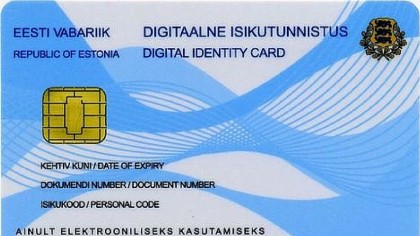From red tape to digital disruption: How governments are becoming tech-savvy
Governments are beginning to realise IT's transformative potential

It used to be rather quaintly called 'e-government', but over the past few years politicians have moved beyond citizen-friendly websites to test out everything from driverless cars and cloud computing to 'virtual nation' and blockchain technology. When it comes to disruptive technologies, many government-sponsored projects take a cue from – and sometimes even outpace – the commercial sector.
Tech-savvy politicians
That governments are becoming more tech-savvy is all down to the internet. Not the hackable mess it is now, but what it could develop into. It's true that despite the hacks the internet long ago became a utility – and with the coming era of the Internet of Things it could even be regarded as critical national infrastructure as important as roads, airports and energy grids – but it's what happens to it next that governments and civil servants are obsessed with.
With added security, more trust and an algorithmically driven, automated future now on the cards, governments are looking to the internet to completely transform public services. So as well as regulating it as a utility, governments need to innovate around the internet – and that's something the commercial world is dragging its heels on.
Cue the blockchain, which could completely change how any organisation manages data and keep records. Blockchain anonymises blocks of encrypted data in ledgers disparately across the network, recording when and by whom data is accessed, and making data effectively both decentralised and tamper-proof.
It requires a leap of faith, but an internet you can 100% trust is a mouth-watering prospect for governments looking to be more efficient, transparent and open, but who also need to ensure data privacy.

Meanwhile, in Estonia…
The UK's chief scientific advisor recently urged the government to adopt such 'distributed ledger technology' (currently underpinning cryptocurrencies like Bitcoin) to help transform public services, something the private sector is taking its time over. It's something currently being put into practice in Estonia, whose government is building a thoroughly advanced cyber-infrastructure called e-Estonia.
The 1.3 million Estonians can now use the internet to pay their taxes, inspect their medical records, vote, and even to get married. The latter is part of a scheme whereby anyone in the world can apply for electronic residency to Estonia.
Are you a pro? Subscribe to our newsletter
Sign up to the TechRadar Pro newsletter to get all the top news, opinion, features and guidance your business needs to succeed!

'Virtual nation' tech
At the heart of Estonia's e-Residency initiative is Bitnation, a blockchain-powered 'virtual nation' that allows e-residents to notarise marriages, birth certificates, and business contracts. It's used elsewhere, too, with blockchain platform Guardtime working with Estonia's e-Health authority.
Citizens can not only view their own medical records, but also see exactly who else has inspected them, and when. What's more, that kind of data is permanently attached to their records, and cannot be deleted or tampered with. But Estonia's e-Residency has an even more ambitious aim.
"In Estonia we believe that people should be able to freely choose their digital/public services best fit to them, regardless of the geographical area where they were arbitrarily born," says Kaspar Korjus, e-Residency Program Director. "We're truly living in exciting times when nation states and virtual nations compete and collaborate with each other on an international market, to provide better governance services."
Jamie is a freelance tech, travel and space journalist based in the UK. He’s been writing regularly for Techradar since it was launched in 2008 and also writes regularly for Forbes, The Telegraph, the South China Morning Post, Sky & Telescope and the Sky At Night magazine as well as other Future titles T3, Digital Camera World, All About Space and Space.com. He also edits two of his own websites, TravGear.com and WhenIsTheNextEclipse.com that reflect his obsession with travel gear and solar eclipse travel. He is the author of A Stargazing Program For Beginners (Springer, 2015),
